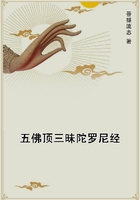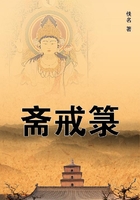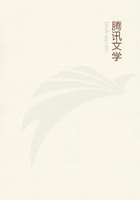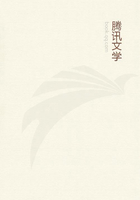Yes; that was to say, he had enough responsibility to bear; but exactness and watchfulness were what was required of him, and of actual work--manual labor--he had next to none. To change that signal, to trim those lights, and to turn this iron handle now and then, was all he had to do under that head. Regarding those many long and lonely hours of which I seemed to make so much, he could only say that the routine of his life had shaped itself into that form, and he had grown used to it. He had taught himself a language down here,--if only to know it by sight, and to have formed his own crude ideas of its pronunciation, could be called learning it. He had also worked at fractions and decimals, and tried a little algebra; but he was, and had been as a boy, a poor hand at figures. Was it necessary for him when on duty always to remain in that channel of damp air, and could he never rise into the sunshine from between those high stone walls? Why, that depended upon times and circumstances. Under some conditions there would be less upon the Line than under others, and the same held good as to certain hours of the day and night. In bright weather, he did choose occasions for getting a little above these lower shadows; but, being at all times liable to be called by his electric bell, and at such times listening for it with redoubled anxiety, the relief was less than I would suppose.
He took me into his box, where there was a fire, a desk for an official book in which he had to make certain entries, a telegraphic instrument with its dial, face, and needles, and the little bell of which he had spoken. On my trusting that he would excuse the remark that he had been well educated, and (I hoped I might say without offence) perhaps educated above that station, he observed that instances of slight incongruity in such wise would rarely be found wanting among large bodies of men; that he had heard it was so in workhouses, in the police force, even in that last desperate resource, the army; and that he knew it was so, more or less, in any great railway staff. He had been, when young (if I could believe it, sitting in that hut,--he scarcely could), a student of natural philosophy, and had attended lectures; but he had run wild, misused his opportunities, gone down, and never risen again. He had no complaint to offer about that. He had made his bed, and he lay upon it. It was far too late to make another.
All that I have here condensed he said in a quiet manner, with his grave dark regards divided between me and the fire. He threw in the word, "Sir," from time to time, and especially when he referred to his youth,--as though to request me to understand that he claimed to be nothing but what I found him. He was several times interrupted by the little bell, and had to read off messages, and send replies. Once he had to stand without the door, and display a flag as a train passed, and make some verbal communication to the driver. In the discharge of his duties, I observed him to be remarkably exact and vigilant, breaking off his discourse at a syllable, and remaining silent until what he had to do was done.
In a word, I should have set this man down as one of the safest of men to be employed in that capacity, but for the circumstance that while he was speaking to me he twice broke off with a fallen color, turned his face towards the little bell when it did NOT ring, opened the door of the hut (which was kept shut to exclude the unhealthy damp), and looked out towards the red light near the mouth of the tunnel. On both of those occasions, he came back to the fire with the inexplicable air upon him which I had remarked, without being able to define, when we were so far asunder.
Said I, when I rose to leave him, "You almost make me think that I have met with a contented man."
(I am afraid I must acknowledge that I said it to lead him on.)
"I believe I used to be so," he rejoined, in the low voice in which he had first spoken; "but I am troubled, sir, I am troubled."
He would have recalled the words if he could. He had said them, however, and I took them up quickly.
"With what? What is your trouble?"
"It is very difficult to impart, sir. It is very, very difficult to speak of. If ever you make me another visit, I will try to tell you."
"But I expressly intend to make you another visit. Say, when shall it be?"
"I go off early in the morning, and I shall be on again at ten to-morrow night, sir."
"I will come at eleven."
He thanked me, and went out at the door with me. "I'll show my white light, sir," he said, in his peculiar low voice, "till you have found the way up. When you have found it, don't call out!
And when you are at the top, don't call out!"
His manner seemed to make the place strike colder to me, but I said no more than, "Very well."
"And when you come down to-morrow night, don't call out! Let me ask you a parting question. What made you cry, 'Halloa! Below there!' to-night?"
"Heaven knows," said I. "I cried something to that effect--"
"Not to that effect, sir. Those were the very words. I know them well."
"Admit those were the very words. I said them, no doubt, because I saw you below."
"For no other reason?"
"What other reason could I possibly have?"
"You had no feeling that they were conveyed to you in any supernatural way?"
"No."
He wished me good-night, and held up his light. I walked by the side of the down Line of rails (with a very disagreeable sensation of a train coming behind me) until I found the path. It was easier to mount than to descend, and I got back to my inn without any adventure.
Punctual to my appointment, I placed my foot on the first notch of the zigzag next night, as the distant clocks were striking eleven.
He was waiting for me at the bottom, with his white light on. "I have not called out," I said, when we came close together; "may I speak now?" "By all means, sir." "Good-night, then, and here's my hand." "Good-night, sir, and here's mine." With that we walked side by side to his box, entered it, closed the door, and sat down by the fire.

